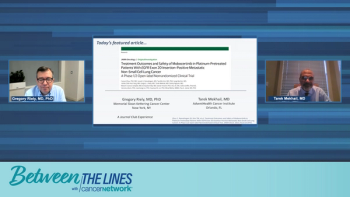
Shared insight on efficacy data with mobocertinib from the EXCLAIM cohort of patients with platinum-pretreated EGFR exon 20 insertion–positive mNSCLC.

Your AI-Trained Oncology Knowledge Connection!


Shared insight on efficacy data with mobocertinib from the EXCLAIM cohort of patients with platinum-pretreated EGFR exon 20 insertion–positive mNSCLC.

Expert oncologists review data from the EXCLAIM cohort, which analyzed mobocertinib use in platinum-pretreated patients with EGFR exon 20 insertion–positive mNSCLC.

An expert in hematology/oncology comments on the importance of early detection and intervention of steroid-refractory chronic GvHD and considers approaches to switching treatments.

Yi-Bin Chen, MD, provides insight on common symptoms of GvHD (graft-versus-host disease), and shares tools for risk assessment and staging of the disease.
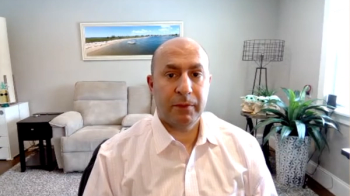
At 2022 ASCO GU, Toni K. Choueiri, MD, discussed the CLEAR study and how East Asian patients with renal cell carcinoma derived similar benefit with lenvatinib plus pembrolizumab as the overall trial population.
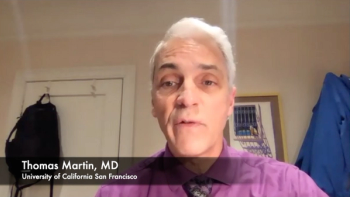
Thomas Martin, MD, spoke about how to increase response durability with ciltacabtagene autoleucel for patients with heavily pretreated multiple myeloma.
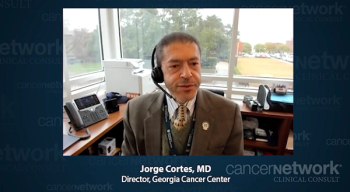
Experts review future implications such as using ponatinib in earlier lines of therapy and in patients with Ph-positive ALL.

Jorge E. Cortes, MD and Hagop Kantarjian, MD debate optimal dosing and discuss how they use ponatinib in patients with CML.

Recommendations for deciding what information is most important to discuss with patients during initial treatment planning for HER2-positive metastatic breast cancer.
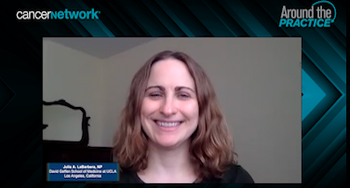
Julia A. LaBarbera, NP, reacts to the treatment approach used for a patient with HER2-positive metastatic breast cancer, and highlights the benefits of new subcutaneous injections of trastuzumab and pertuzumab that are available.
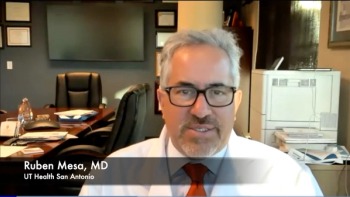
Ruben Mesa, MD, spoke about which patients stand to benefit the most from the approval of pacritinib in myelofibrosis with severe thrombocytopenia.
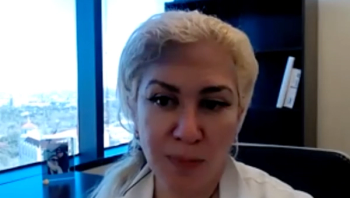
Eleni Efstathiou, MD, PhD, spoke about how results of the phase 3 MAGNITUDE trial, which examined the combination of niraparib with abiraterone acetate and prednisone, have the ability to change the standard of care in patients with metastatic castration-resistant prostate cancer.
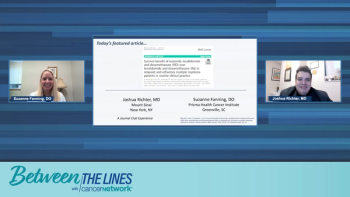
Hematologic oncologists discuss toxicities seen with ixazomib, lenalidomide, and dexamethasone (IRd) compared with lenalidomide and dexamethasone (Rd).

Thomas Martin, MD, spoke about which patient population with relapsed/refractory multiple myeloma would benefit most from treatment with ciltacabtagene autoleucel.
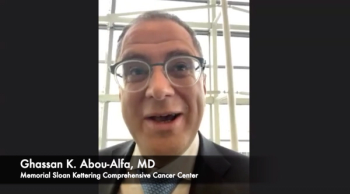
The combination of tremelimumab plus durvalumab improved survival for patients with unresectable hepatocellular carcinoma in the phase 3 HIMALAYA trial.

Ruben Mesa, MD, spoke about the accelerated approval of pacritinib and its importance for the treatment of myelofibrosis with severe thrombocytopenia.

Thomas Martin, MD, spoke about the importance of the approval of ciltacabtagene autoleucel to treat patients with pretreated multiple myeloma.

Chung-Han Lee, MD, PhD, spoke about interesting findings that arose from the KEYNOTE-146 study for patients with metastatic renal cell carcinoma.
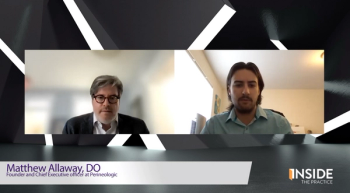
Matthew Allaway, DO, detailed benefits of using an emerging transperineal biopsy approach to identify prostate cancer in hard to access areas of a patient’s prostate.

Eleni Efstathiou, MD, PhD, spoke about the positive results seen in the phase 3 MAGNITUDE trial in patients with metastatic castration-resistant prostate cancer harboring homologous recombination repair gene alterations who were treated with a niraparib-containing regimen.

Following 2022 ASCO GU, Daniel P. Petrylak, MD; Benjamin H. Lowentritt, MD; Alan H. Bryce, MD; and Tanya Dorff, MD, engage in a rapid-fire question-and-answer 2-Minute Drill program, hosted by CancerNetwork®. Topics include most surprising new data, what needs follow-up, and shameless plug.

Hagop Kantarjian, MD responds to a review of dosing options in patients with CML treated with ponatinib.

Dr. Cortes reviews ponatinib dosing strategies based on patient profiles and mutational status.

Radiation oncologist Kamran Ahmed, MD, comments on indications for using radiation therapy to treat patients with HER2-positive de novo metastatic breast cancer.

The rationale for treating Erika Rich, a patient with HER2-positive metastatic breast cancer, with docetaxel, trastuzumab, and pertuzumab.
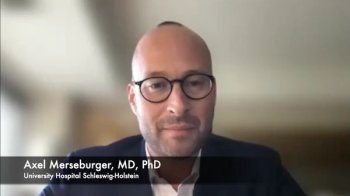
Axel Merseburger, MD, PhD, spoke key results of the PRESIDE trial, which examined continuous enzalutamide to treat patients with metastatic castration-resistant prostate cancer and progressive disease.

Two experts discuss cytogenetic profiles in patients with relapsed/refractory multiple myeloma treated with either doublet or triplet therapy.

Hope S. Rugo, MD, MBA, and Paolo Tarantino, MD, give a preview to a first-of-its-kind Tweet Chat taking place in January 2023.

Chung-Han Lee, MD, PhD, spoke about using biomarkers to help predict responses in patients with metastatic renal cell carcinoma treated on the KEYNOTE-146 study.

Eleni Efstathiou, MD, PhD, spoke about the treatment combination of niraparib plus abiraterone acetate and prednisone for the treatmeant of men with metastatic castration-resistant prostate cancer in the phase 3 MAGNITUDE trial.